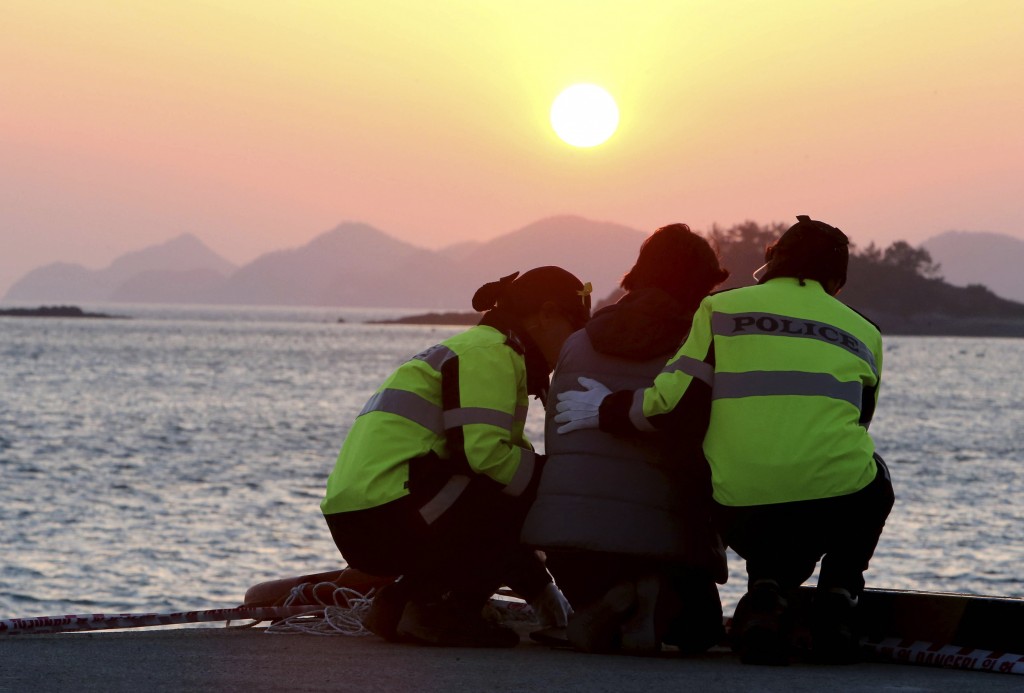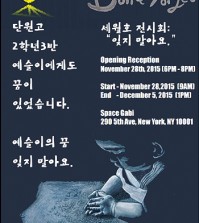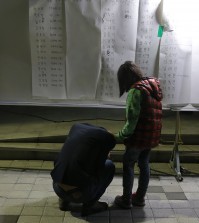- California Assembly OKs highest minimum wage in nation
- S. Korea unveils first graphic cigarette warnings
- US joins with South Korea, Japan in bid to deter North Korea
- LPGA golfer Chun In-gee finally back in action
- S. Korea won’t be top seed in final World Cup qualification round
- US men’s soccer misses 2nd straight Olympics
- US back on track in qualifying with 4-0 win over Guatemala
- High-intensity workout injuries spawn cottage industry
- CDC expands range of Zika mosquitoes into parts of Northeast
- Who knew? ‘The Walking Dead’ is helping families connect
Ferry tragedy casts shadow on Korean economy

A relative, center, of a passenger aboard the sunken Sewol ferry is consoled by police officers as the wait gets longer at a port in Jindo, South Korea, Wednesday, April 30, 2014. (Yonhap)
By Kim Tae-jong
The Sewol tragedy will have a longer and larger negative impact on the domestic economy than previous disasters, experts said Thursday.
“The shock from the Sewol disaster will last longer and have a bigger negative impact on the economy, different from previous accidents,” Bae Sang-kun, vice president of the Korea Economic Research Institute (KERI), said.
“Most of victims are young students and it is unclear when the salvage operation will be completed, which makes the mourning period last longer and leads people to spend less.”
Recent data show that the two-week-old tragedy has affected private consumption.
According to information from credit card firms, combined sales dropped by about 4 percent to 2.97 trillion won during the week between April 16 and 22, compared to 3.09 trillion won recorded in the same period last year.
Market insiders believe the accident has made people refrain from purchasing goods, participating in entertainment events or going on trips.
Reflecting weaker-than-expected first-quarter consumption and the negative impact of the Sewol disaster, Nomura Global Economics has cut the 2014 annual private consumption forecast to 2.2 percent from 2.9 percent and the import growth forecast to 4.4 percent from 6.1 percent.
The company noted that private consumption was not severely affected in the past major disasters, as other factors such as income growth, asset prices and financial conditions dominated consumer behavior.
“Following the Daegu City subway arson in February 2003, retail sales declined, but this was largely a result of the 2003 credit card crisis, which constrained consumer financing activities substantially,” Kwon Young-sun, a research analyst at Nomura, said in a recent report.
Private consumption was not severely affected in other disasters that claimed more than 100 people such as the Sampoong Department Store collapse in 1995 and the Seohae Ferry sinking in 1993, he said.
But following the Sewol disaster, the private consumption decline in April, most of which is directly related to school trips or festivals, is unlikely to be recovered in the coming months as Korean parents are anxious about safety, Kwon said.
Oxford Analytica, a global analysis and advisory firm, also said in its recent report that the Sewol catastrophe will have an extensive and negative impact on local retail sectors from tourism to food services.
In this regard, analysts said the gross domestic product (GDP) growth could be lower than the Bank of Korea’s (BOK) initial projection of 3.9 percent if the Sewol disaster continues to have a negative impact on consumption.
“Corporate investment and export will not be affected by the tragic event,” Bae of KERI said. “In fact, the nation’s exports have surged, widening the trade surplus. But the drop in private consumption will have a negative impact on the nation’s economic recovery.”
With growing concerns about the impact of the ill-fated vessel on the economy, BOK Governor Lee Ju-yeol has also said he was closely monitoring economic conditions amid the uncertainty.
But government officials said they are being careful about introducing simulative policies, as the nation is in mourning for the victims of the disaster.
It is also true that economic issues have been set aside, although the government had pushed various policies to boost the economy, such as deregulation.
But other economists said the impact will be short-lived, as people’s consumption sentiment will soon be normalized after bottoming out right after the accident.
“The Sewol disaster is more pressure on already low private consumption,” Kim Sung-tae, an economist at the Korea Development Institute, said. “But it will be a temporary factor, and people will spend more in May or June with their saved purchasing power.”















